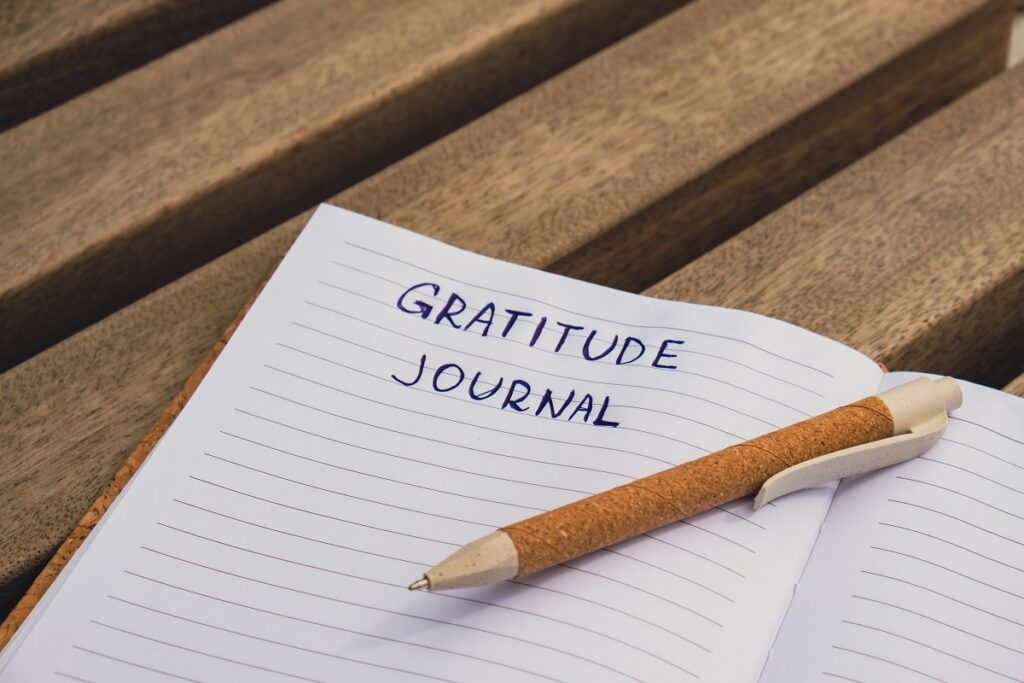You’re probably interested in starting a regular journaling practice to increase self-awareness, decrease stress, and increase mindfulness.
Famous authors and philosophers such as Virginia Woolf, Albert Einstein, and Anne Frank have maintained diaries for self-reflection. This simple habit helped them clear their mind, unlock creativity, and become calmer. Despite its lengthy history, journaling may be difficult to continue, particularly if you don’t know where to start.
We’re delighted to offer our mindfulness diary recommendations to help you remain grounded and present. We’ll cover everything from picking a diary and pen, developing a writing routine, and exploring prompts and ways to help you tap into your inner knowledge and intuition.
This article is for beginners and advanced journalers alike. We’ll provide you with practical tips and encouragement to keep up your writing practice so you can get all the advantages of mindfulness journaling.
Get a cup of tea and choose a quiet area to start mindfulness journaling. By the conclusion of this article, you’ll have all the tools and insights you need to develop an effective daily practice to increase presence, awareness, and peace of mind. Ready?

Choose High-Quality Prompts
Who likes using a cheap, scratchy pen with a thin, crinkly notepad? I’m sure I don’t! The quality of your pen and notebook can greatly impact creating a new habit. The more you like it visually, the more likely you’ll be to keep going daily. You’ll enjoy writing if you get a smooth-writing pen and a notebook with thick, high-quality paper.
Second, a particular pen and diary might enrich the experience. A writing notebook is a wonderful place to express your ideas and feelings. Writing with a pen, you love might feel like saying yourself.
Don’t know where to start? Well, I’ve been journaling since I was seven, and here are my top favorite brands:
- Moleskine: Classic, attractive diaries on high-quality paper. They range from tiny notebooks to huge journals with beautiful covers.
- Leuchtturm1917: Bullet notebooks and other creative writing techniques benefit from Leuchtturm’s durable covers and dot-grid paper.
- Parker: This classic brand is best known for its exquisite design and easy writing.
- Cross: Cross pens are also famous for their high-quality texture and color.
Set a Specific Time to Do It
Setting a regular journaling meditation time might help you create a habit. Here’s why:
First, establishing a time helps you make it a habit. It becomes a habit when you know you’ll sit down and write in your notebook every day at 7 am (or whatever time you select). It’s automatic—you don’t have to decide.
Second, the schedule keeps you responsible. It’s easier to keep a daily commitment. “I’ll journal sometime today” is simple to put off or forget. “I’ll journal at 7 am every day” is more likely to persist.
How can you keep your daily time? Planning methods include:
- Employ a journaling app: Several applications can remind you to write at your preferred time. Day One, Journey, and Penzu are popular.
- If you prefer analog, use a planner or bullet notebook to arrange your daily journaling time. Follow it in your planner at the start of each week.
- Try adding journaling to your morning or evening regimen. You may journal for 10 minutes each morning after coffee or 15 minutes each night before bed.
Regardless of your planning method, make regular writing a must. After a while, you’ll look forward to that peaceful time each day to write and ponder.
Open Up About Your Emotions
Mindfulness requires self-awareness. Self-awareness increases as we recognize and reflect on our feelings. Self-awareness helps us detect thinking and emotion patterns and comprehend how they affect our well-being.
Second, writing may help relieve pent-up emotions. Keeping our sentiments within may overwhelm us and undermine our mental and physical well-being. Writing things down lets us recognize and process them.
How can you start writing your feelings? Beginners:
- Journal daily. As said, creating a journaling time might be quite useful. Make it a daily requirement and allow yourself time to ponder.
- Write freely. Remember that there’s no proper way to journal. Write whatever comes to mind without caring about quality or readership. This is your own sanctuary.
- Open up. It’s the toughest yet most crucial element of talking up about your emotions. Even if it’s hard, write what you’re feeling. Acceptance is the first step to constructive transformation.
Journaling helps you accept and acknowledge your emotions, which improves meditation and well-being.

Track Your Progress
Rereading your diary might help you understand yourself emotionally. Here’s why:
Reviewing your diary entries might reveal emotional trends and how you feel overall. You may discover emotional triggers or motives over time, which improves your perception of yourself and the world around you.
Second, reading your old journals may show you how much you’ve changed. You may realize that things that used to bother you no longer do or that you’ve learned new ways to handle difficult circumstances. Self-reflection empowers and validates.
How might rereading your diary enhance your meditation? Understanding your thoughts and emotions can help you meditate. If you know a certain idea or feeling will occur during meditation, you may prepare for it and concentrate on managing it.
Rereading your diary writings requires prudence. Rereading your writing may help you understand yourself, but don’t get caught up in it. Remember that you’re not the same person you were when you wrote those notes, and it’s good to let go of previous feelings and experiences that no longer serve you.
If you often find yourself thinking about the past, I wrote this post on 5 Worrying Signs You’re Still Stuck in The Past.
Don’t Push Yourself Too Hard
Pushing yourself too hard to write in your diary when you’re uninspired might make you despise it. If you push yourself too hard, you may link writing with unpleasant emotions like tension or irritation, making it difficult to maintain.
Creating a new habit requires discipline, effort, and delight. Taking a break from journaling is alright if you’re not feeling motivated.
Journaling may be rejuvenated by taking a break. Take a stroll, meditate, breathe, or do anything else that nurtures you.
Writing everything down with openness and self-compassion is crucial. It’s natural to have days when you’re more driven to write. If you skip a day, just start writing again when you’re motivated.
Journaling should be fun and used for self-discovery. Take your time, be kind to yourself, and remember that the essential thing is to develop a healthy connection with writing that will help you grow and prosper. Trust me, it’ll all be worth it in the long run!
Your Takeaway
If you made it this far, congrats! We hope these recommendations helped you start a regular writing practice to increase mindfulness and self-awareness.
Remember: writing may help you connect with yourself and the world. By picking a pen and notebook you enjoy, adopting a regular writing schedule, and exploring various prompts and strategies, you may tap into your wisdom and intuition and get the advantages of mindfulness journaling.
Ralph Waldo Emerson said, “Write it on your heart that every day is the finest day in the year.” You can make every day the best by maintaining a mindfulness diary to increase appreciation, happiness, and mindfulness, trust me!
So why wait? Start journaling and enjoy this new journey!









